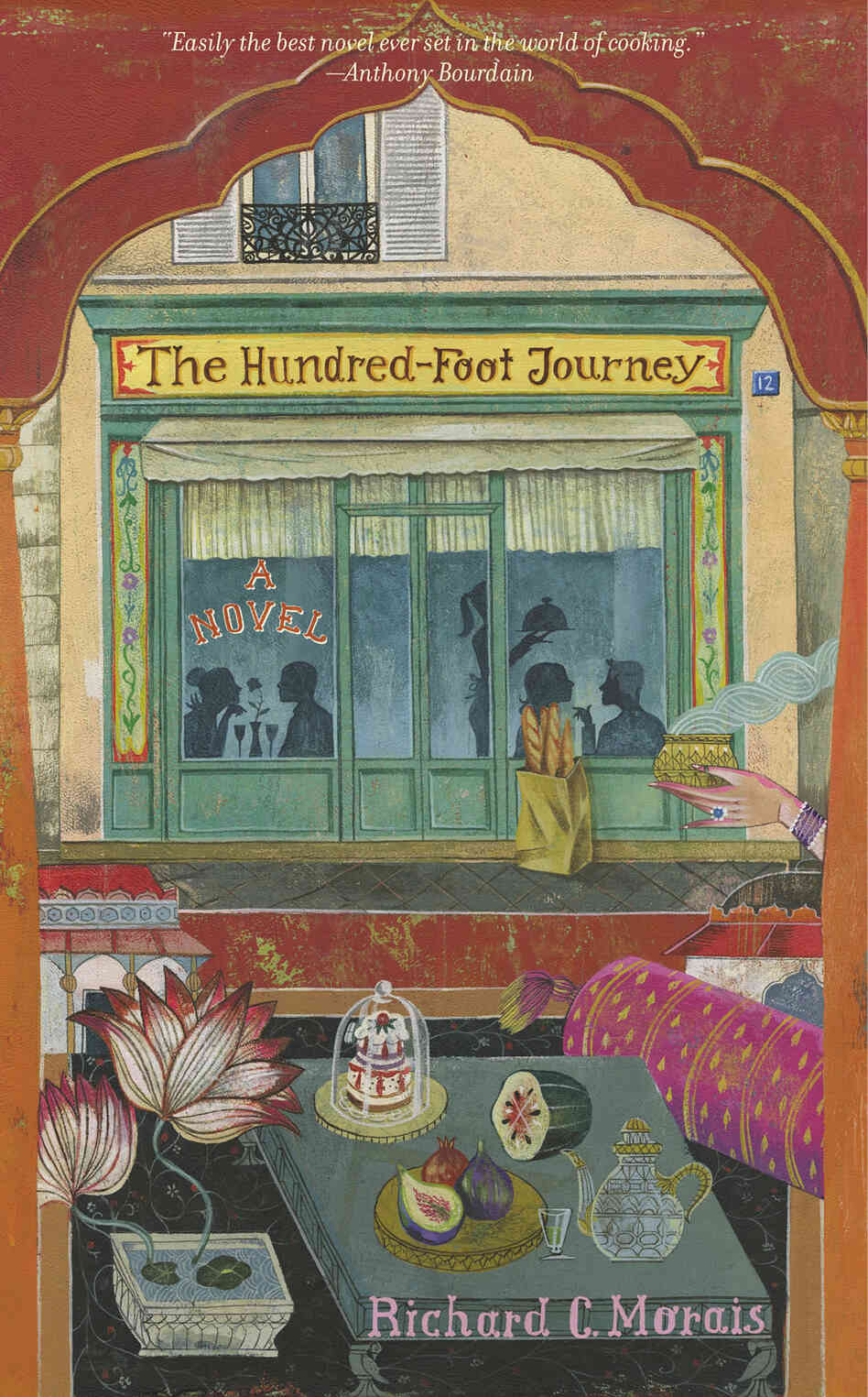I think that often we find what we're looking for in books--they kind of mirror something in us--which is why sometimes really good ones get ambivalent reviews--some people love them and some really don't like them, depending on where they are in their own lives. Some books do get rave reviews from everyone, but all opinions are subjective, so perhaps those rave reviews have as much to do with trends, public consciousness (etc etc) as they do with good writing? Is it that the truly enduring classics touch enduring commonalities and that's why they consistently receive high ratings? I know that many garbage books that hit trends get huge ratings but do not endure beyond the current flavor of the month/year. Hm.
In this book we meet Haji in India at the beginning of his life before he ever begins to cook. Even at the beginning of his life, though, he is surrounded by the smells and tastes of what will drive him through his adulthood. We follow him and his family from India to Britain and, finally, to France. His journey is filled with food and family and relationships and sumptuous descriptions of it all.
This story was more of a fairy tale in many ways than it was a (fictional) memoir. There were ugly things, but mostly there were beautiful things that happened at the right time in just the right way. It was a simple book with obvious cause and effect relationships between what happened to Haji and how the rest of his life was changed by what came before.
I liked this book a lot. It reminded me a little bit of a cross between two other of my favorite books, "Edward Trencom's Nose" and "The Piano Shop on the Left Bank" (two books that I have not reviewed here! If you read "Edward" be warned that it is earthy in spots). It was the mix of the sensual (not sexual--there's a difference, you know), the earthy and... Paris, I think (not that I particularly like Paris). Hard to pinpoint. I like simple books with yummy writing. I like multiple connections and clear resolutions. Mostly, this book had some themes that I've been thinking a lot about lately, so I loved reading it.
Sex: Haji has plenty of girlfriends with whom he has sex, but there are no descriptions.
Bad language: Two serious swear words towards the end from the mouth of a very pleasant lady who has Tourette's Syndrome.

No comments:
Post a Comment